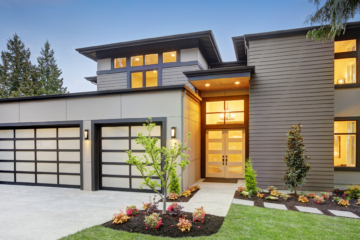Buying An Income Property: Investing in real estate is different from other kinds of investments. Your holdings don’t gain value immediately due to borrowing costs and slow gains in equity. That’s why property investment is a long-term proposition. The potential for a reasonable return over time is very real, but building equity and profitability takes time.

Do You Have What It Takes?
- Are you comfortable with marketing?
- Are you willing to allow strangers to occupy your property?
- Are you comfortable with evictions if tenants don’t pay the rent?
- Can you financially weather several months without your property being rented in a down market?
- Can you afford to hire a maintenance crew or do the work yourself? If you’re going to be a landlord, you must do the work that landlords do or hire a management company to do it for you.
Understand The Market
Before you buy, hire a real estate professional who specializes in investment properties. He or she will help you pick a neighborhood to get started, and possibly help you find a lender. Get to know the market prices for rentals and properties for sale. Visit many properties so you can recognize value when you see it. A good rental should rent for approximately 10 percent of your purchase price, but that’s not possible in many markets.
Talk to your real estate professional about returns in your marketplace. He or she will help you with a formula that is achievable.
Learn what you need to know Buying an income property means that you will become a landlord. You need to be well versed in state laws, tenant rights, and know how to write a valid contract that protects you – the property owner. Make sure you understand the eviction process and buy the appropriate hazard insurance for your rental property.
Older homes need work The advantage to buying an older home as an income property is that the neighborhood is already established. The disadvantage is that as homes age, they need updates and repairs. Never buy a home without getting it inspected. Make sure plumbing, electrical, and heat and air systems are in good working order. Set aside funds to replace or repair these items as needed.
Talk to your tax professional When borrowing to buy a home, you don’t get the favorable loan rates or tax breaks that an occupying homeowner gets. Your monthly payment is not considered a tax-deductible expense. While you do enjoy some tax deductions like property taxes, typical maintenance expenses such as replacing a roof aren’t deductible because you’re already deducting the depreciation on the property. Make sure you understand your monthly bottom line and how much you need in reserves to maintain the property before committing to buy.
Don’t wait for the bottom to get started. Some investors believe that waiting for prices to hit bottom is the right time to buy, but how do you know where the bottom is? Most don’t recognize the bottom until it’s already passed by and home prices are rising again. Instead, look for value – the older home that could use a few updates in a solid, in-demand neighborhood.


